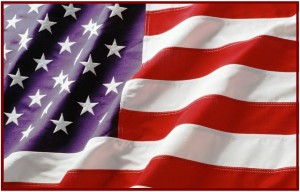
Washington said in his proclamation that part of the purpose was “to render our national government a blessing to all the people,” and not just some of them.
What is often called the most American of holidays, Thanksgiving, has its roots in the early 17th century sprouting from pilgrim and other colonial celebrations of refugee and immigrant survival because of bountiful shared harvests.
President George Washington first designated the celebration of Thanksgiving by our national government a century later in 1789, although the Continental Congress of our nascent republic proclaimed several such days at varying times during our war of rebellion against England.
General Washington in December of 1777 celebrated a day of “Thanksgiving” after the defeat of the British at Saratoga during what has come to be known as our War of Independence, a war conducted when we were still a loose confederation of former colonies who rebelled in part because we were resisting taxation to pay for the ongoing folly of foreign wars and entanglements of our then legal government located across the Atlantic ocean. Sound familiar?
Some maintain that Thanksgiving became a true national holiday in 1863 during another bloody war, this one fought initially to keep our new nation united, but a war that ultimately evolved to end the dreadful practice of slavery. President Lincoln proclaimed that the last Thursday of November would be a National Day of Thanksgiving. Slavery was an issue that writers of our Constitution, many of them slaveholders and all of them wealthy, feared to address because of economic self interest. This failure of foresight about the ethical and legal problems that would ensue, as well as the fearsome bloodshed it would take to resolve them, is cause for thanks – thanks that it would, eventually, be over, though the Civil War dragged on.
Fighting still another war, this one economic but just as devastating to overall American well-being, President Franklin Roosevelt ordered that Thanksgiving should always be celebrated on the fourth Thursday of the month in an attempt to promote holiday shopping earlier to stimulate a stalled economy.
So, today Thanksgiving, let us give thanks for our current democracy, while remembering the hard battles past and the soldiers who fought them, while girding ourselves for the certain political and economic and possible military battles we now face.
Through it all, remember there will always be more reasons to celebrate during Thanksgivings to come, particularly if we adhere to the “we the people” principle of our founding fathers. Call it American optimism or American liberalism and expanding inclusiveness – and for these problem-solving American traits, we can always be thankful.

